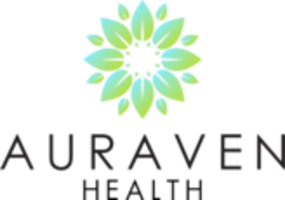
When it comes to claim denials, revenue cycle management teams may feel as though insurance carriers always have the advantage. In the current market scenario, there is a growing demand for revenue cycle management solutions.
Having knowledge of the Employment Retirement Income Security Act (ERISA) works to your advantage. ERISA is one of the most underutilized healthcare revenue solutions. ERISA law can be leveraged when reimbursement is lower than expected and other appeals have been unsuccessful. It's only used in less than one percent of hospital medical appeals. In this article, we review how ERISA can help to improve healthcare revenue cycle management.
What is Revenue Cycle Management (RCM)?
Revenue Cycle Management (RCM) encompasses a patient's entire journey – from the moment they schedule an appointment to making their final payment for services rendered. RCM includes all administrative and clinical functions that contribute to the intake, management, and collection of payments. This process is critical for hospitals to maintain financial stability and continue to provide quality care for its patients. At the end of this process, hospitals need to handle denied claims. Denials can lead to hospitals receiving delayed payments or no payment at all.
What is ERISA?
The Employee Retirement Income Security Act of 1974, abbreviated as ERISA, is a federal law created to primarily protect workers and their beneficiaries relying on employee benefit plans, pensions, and other group benefits packages. Most private-sector health plans are subject to ERISA. ERISA requires insurance providers to give participants comprehensive information regarding their plans, such as coverage eligibility, benefits, associated costs (premiums, deductibles, and copays), and the process of making a claim.
ERISA protects patients and other beneficiaries as well as medical providers. The legislation established a formal process to help most medical practices make insurers pay on claims which are being denied, delayed, or recouped.
ERISA is one of the most underutilized healthcare revenue solutions. It's only used in less than one percent of hospital medical appeals.
Addressing denied claims:
At the end of the RCM process comes an often overlooked opportunity. How does your staff address denied claims?
This is where denial management processes help to ensure that there is an immediate resolution to these denials. Denial management can also help to identify if there are trending issues within a provider's workflow processes, whether it be clinical or clerical-related.
The back-end team of the revenue cycle management follows up with the status of pending claims, patient statements and reasons for claim denials. Patients whose claims that have been resubmitted for charges must be contacted promptly to make payments on the outstanding balance. They handle inquiries from patients and payers and resolve any clarifications regarding reports.
The team also manages the pending and outdated revenue payments and process the appeals of the patients who refuse to pay. They also communicate with the insurance department regarding the reasons for claim denials.
ERISA with your revenue cycle team.
Because the revenue cycle process is complex and subject to regulatory oversight, healthcare providers can turn over their revenue cycle management to companies that handle this complex process with specialized agents and proprietary technologies to manage healthcare provider revenue cycles.
Most hospitals are unable to dedicate the time to properly file an ERISA appeal.
Consider hiring an outside specialist team, such as Auraven, to help to uncover which claims might be impacted by an ERISA. Dedicating time to ERISA review will offer a return on lost revenue.
Using a specialized and detailed process for ERISA appeals, Auraven offers an experienced team to assist you and ensure a full and fair review of your ERISA appeal. Our team of ERISA specialists takes care of 95% of the workload.
At Auraven, we strive to ensure that the expected reimbursements are paid accordingly, as it varies depending on the hospital. We ensure every bit of information remains safe and secure to guarantee maximum benefit reimbursement and revenue recovery due to zero paid/underpaid benefit claims.
If you’re interested in maximizing ERISA to protect your hospital revenue, but do not have the in-house staff to handle it, consider seeking help from an experienced ERISA appeals team such as Auraven Health.
Call Auraven for assistance at 833.927.7325.










